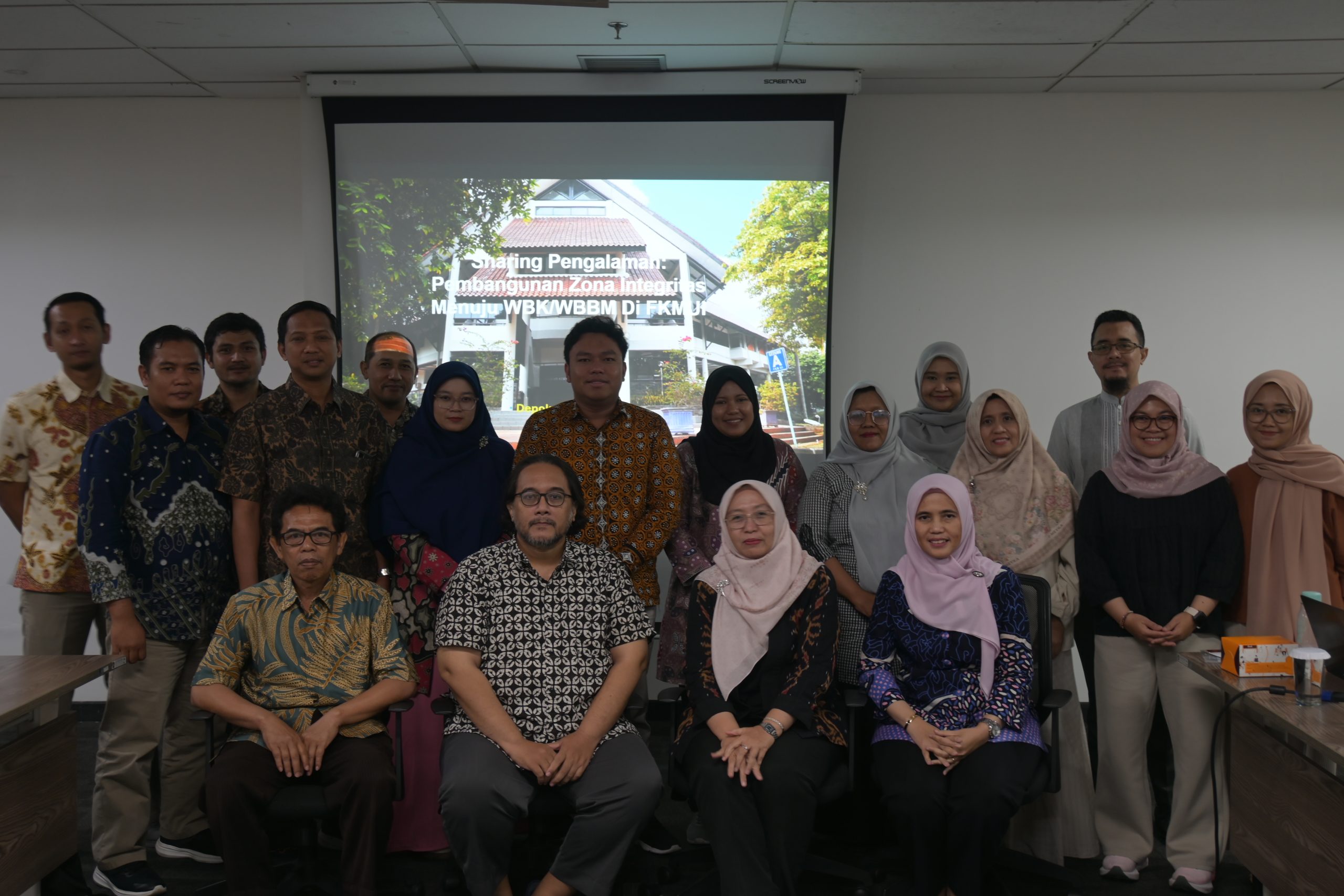Depok, July 25, 2025 — The Faculty of Public Health (FPH) at Universitas Indonesia (UI) reaffirmed its commitment to advancing bureaucratic reform within higher education institutions by welcoming a benchmarking visit from the Faculty of Social Sciences at Universitas Negeri Malang (FIS UM) on Friday, July 25, 2025. The visit served as a platform for sharing experiences and best practices in developing an Integrity Zone (Zona Integritas/ZI) toward achieving the Corruption-Free Zone (Wilayah Bebas dari Korupsi/WBK) designation.
The event, held in Meeting Room P209 at RIK UI, was attended by Dr. Milla Herdayati, S.K.M., M.Si., Vice Dean for Resources, Ventures, and General Administration at FPH UI; Prof. Dr. dr. Sabarinah, M.Sc., FPH UI’s Integrity Zone Development Figure; and the ZI development team of FPH UI. From Universitas Negeri Malang, attendees included Dr. Deny Yudo Wahyudi, S.Pd., M.Hum., Vice Dean II of FIS UM; Arif Wicaksono, S.T., M.M., Sub-Coordinator for Finance, Human Resources, General Affairs, and Assets; as well as eight ZI team members comprising faculty and administrative staff who also serve as area managers for ZI development at FIS UM.
In his opening remarks, Dr. Deny Yudo Wahyudi expressed gratitude for the opportunity to learn directly from FPH UI, which has successfully achieved WBK status. “We have been working for three years to develop our ZI and have reached the Ministry of Education, Culture, Research, and Technology level, but have yet to advance to the Ministry for Administrative and Bureaucratic Reform (KemenPAN-RB). We have learned from UGM, UNPAD, UB, and now from FPH UI, hoping to gain valuable insights we can apply at UM,” he said.
Dr. Milla Herdayati shared FPH UI’s experience as the unit designated by UI to represent the university in ZI development since 2019. She explained that one of the initial challenges in forming the team was determining the right structure. Eventually, it was decided that ZI teams should be aligned with the main duties and functions (tupoksi) of each unit. “This structure ensures that each area team deeply understands the context, challenges, and appropriate solutions based on real conditions in the field,” she explained.
Prof. Sabarinah emphasized that building an Integrity Zone requires more than just standard operating procedures (SOPs), monitoring-evaluation, and regulations. “The most important aspects are the innovations from each area and the internalization of integrity values in every individual. Additionally, communication through social media and websites plays a key role in publicizing our programs and achievements,” she asserted.
During the presentation session, Dr. Milla outlined FPH UI’s journey in implementing the Integrity Zone leading to WBK status. Since 2019, FPH UI has undertaken a long process, starting from the ZI declaration, training change agents, obtaining ISO certification, and ultimately achieving WBK recognition in 2021. Various innovations have been introduced, including the Student Well-Being Center, digital-based public services, and the Integrity Zone Garden as a symbol of anti-corruption education. The FPH UI ZI team has also been actively involved in community satisfaction surveys, periodic monitoring and evaluation, and mentoring both internal and external units within UI.
“In building the ZI, FPH UI emphasizes the importance of commitment and mindset shifts, easy and transparent services, community-oriented programs, and strategic public communication. However, we still face many challenges, such as suboptimal oversight implementation, work culture improvement, and the need to better utilize community surveys for service enhancement,” said Dr. Milla.
The approach implemented by FPH UI is expected to serve as a replicable model for other institutions aiming to sustainably develop their own Integrity Zones.
During the interactive discussion session, participants exchanged ideas on managing public complaints, empowering change agents, and using information technology to support data management and innovation.
This activity reinforces FPH UI’s role as a reference institution in building clean, transparent, and participatory governance, while also opening doors for inter-faculty and inter-university collaboration in impactful bureaucratic reform. (wrk)

